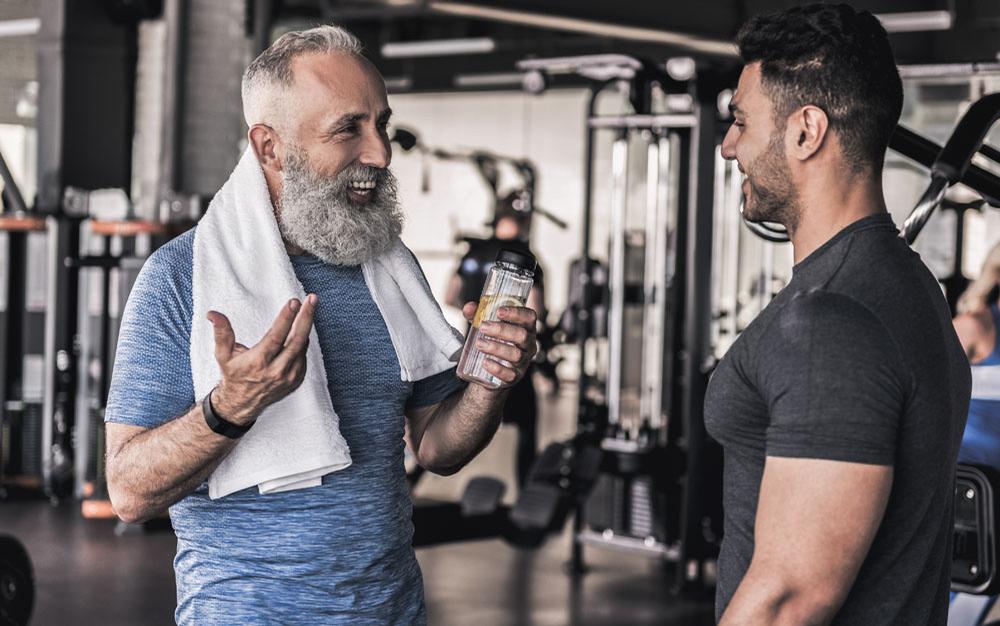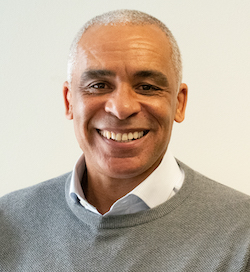What are the positives and negatives established by your study?
The global pandemic has disrupted lives on a scale unknown to most of us until now, so it is probably not a surprise that when we asked whether people had experienced a mental health issue in the last 12 months, 53 per cent answered ‘yes’. However, it’s also worth noting that, overall, 69 per cent said they have experienced a mental health issue at some point. This suggests that the prevalence of mental ill health is not just a pandemic issue for the sector.
Of course this is a wider issue, not just one for our sector. According to the NHS England Mental Health Taskforce 2016, the UK economy loses approximately £105 billion each year to mental health related issues. If our sector is to thrive, we need to look after the wellbeing of our workforce. This means creating a culture that places as much importance on mental health as physical health.
We all have mental health and it can change over time just like physical health. Our research suggests that, as a sector, we need to work harder to de-stigmatise mental health, making it as easy and as accepted to talk about as physical health. The impact of stigma can be seen in the 42 per cent of those questioned who stated that they would not be honest with their employer if they needed time off work due to a mental health issue.
When questioned further as to the reasons behind this, 29 per cent said because they would worry that to do so might negatively impact their career, 18 per cent said they would worry about being negatively thought of by others and 24 per cent said they would find it difficult to talk about a personal mental health issue.
It’s encouraging to learn that of those questioned who report to a manager, 78 per cent felt that their manager cared about their mental wellbeing. 79 per cent of respondents also felt that if a colleague approached them about a mental health issue, they felt equipped to support them and to signpost them effectively to help.
Is the industry workforce in good shape?
In terms of current health, collectively, our respondents rated their physical health as 73/100, their social health as 65/100 and their mental health as 63/100.
Behind that data are over 1,000 individual stories, but our analysis showed that those over 45, men and senior leaders reported the highest combined health scores. This was the first survey of its kind which has set a benchmark, so we don’t yet have historical data to draw comparisons against. That will come as we repeat our research.
What our survey does tell us is that there has been no universal experience of the pandemic.
The range is vast, from people who have experienced severe distress over the last 12 months and continue to do so, to others that have thrived during the pandemic. Lack of awareness and understanding can be an issue at both an organisational and personal level and there is the added layer of stigma associated with mental health problems.
Stigma means many workers don’t feel able or safe to talk to their employers when they are in distress. This is problematic, because it hinders open and honest conversations that identify risks and mitigations, issues, opportunities and actions. If these conversations happen when they need to, it usually means better outcomes for everyone.
Tell us about the Good Work Pledge.
It is our hope that the survey has shone a light on workforce mental health and offered valuable insights that will help employers and individuals understand the current state of play and to take action that will address some of the issues identified.
We’re all in this together. Every person and every employer has a role to play.
As part of the Workforce State of Mind Survey 2021, we make four broad recommendations focused around improving awareness through education, reducing stigma, sector leadership and supporting a return to work.
Employers have a huge role to play. Whilst not all mental health issues result from work or the place of work, the fact that we all spend so much of our time working means that the culture and environment created by employers can have a huge influence on our ability to cope with everyday stress and anxiety. Employers have a duty of care to their employees.
We feel it’s important we all pull together under a single ambition to shine a light on issues surrounding mental health and make a commitment to action that will drive positive change. The action that is appropriate for each organisation will be different – there’s no one size fits all fix, but every organisation has a part to play and simple actions can make a big difference.
The Good Work Pledge is a way to unite the sector to drive progress. It enables employers to show their commitment to employee mental health and work towards meeting the Thriving at Work Six Mental Health Core Standards – the government-backed framework for employers.
We called it The Good Work Pledge because characteristics of ‘good work’ can help prevent new mental health problems developing and support those with mental health conditions to do well at work. CIMSPA is backing The Pledge and we encourage all employers serving the fitness and active leisure sector to get involved. There is more information about the pledge on our website workplacementalwealth.com/pledge.
By far, the single biggest impact on respondent’s wellbeing was if they felt their work had purpose and if they felt valued.
Why did you undertake this study?
Quite simply, because it needed doing. We are passionate about driving forward the mental health agenda for our sector and because we had the skills to do it. Our focus is on working with employers and industry bodies, providing the tools and insights needed, to enable them to deliver effective employee wellbeing strategies that take a whole-person approach, placing mental health on a par with physical health.
A great deal of what the sector can do to create mentally healthy workplaces is well within its gift because it’s about providing good work, not clinical mental health interventions.
Tell us about your partnership
We’ve known each other professionally for more than 20 years, although we had never worked together before. While most will know me for my industry communications specialism, Lindsey is well known both inside and outside of the leisure sector for her cultural change work.
Over the summer of 2020, whilst in the grip of a pandemic, we both became Mental Health First Aiders and established a mutual interest in looking at and better understanding the mental health of the sector’s workforce. It was at this time we discovered there had been no sector-wide exploration of the sector’s state of mind. We decided our skill sets would marry well and would enable us to plug this much needed gap. We consulted with Tara Dillion, CEO at CIMSPA very early on and were really pleased when CIMSPA agreed to back the survey and The Good Work Pledge.
Do operators in the activity market value their staff highly enough?
Every organisation is different so that’s an impossible question to answer, certainly without much more exploration. What we do know is, there has been incredible support for our work, suggesting there’s a collective ambition to better understand the state of mind of the workforce and work together to drive systemic change that will positively impact at every level of the sector.
Our aim is to conduct this survey annually to keep workforce mental health in the spotlight, to chart positive progress and share insights. The Good Work Pledge and other projects we have planned will also help support the sector to meet the challenges ahead for the benefit of our people, our organisations and the customers we serve.

























































